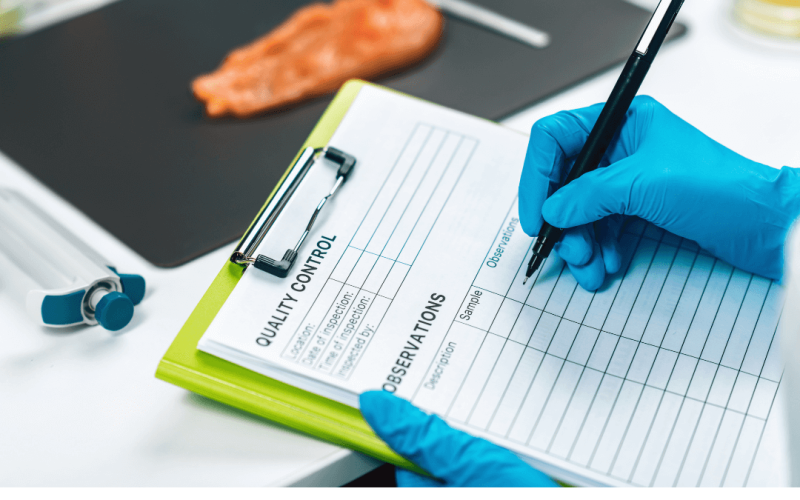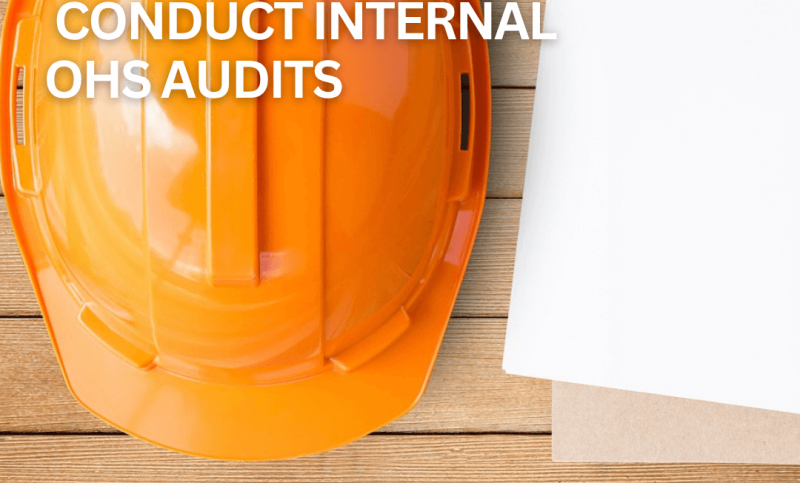Food safety is a critical priority for businesses across the supply chain, from manufacturers and distributors to restaurants and retailers. As consumer awareness grows and regulatory standards tighten, businesses must remain vigilant in identifying risks, maintaining hygiene, and implementing robust food safety practices.
This June, with World Food Safety Day (June 7), it is the perfect time for businesses to reassess their food safety measures and address emerging challenges.
The Most Common Food Safety Hazards and Their Consequences
Food safety hazards can arise at any stage of the food supply chain, leading to serious health risks, legal repercussions, and damage to brand reputation. The most prevalent food safety risks include:
- Biological Hazards: Bacteria, viruses, and parasites such as Salmonella, E. coli, and Listeria can cause severe foodborne illnesses. Contaminated raw ingredients, improper storage temperatures, and cross-contamination are common causes.
- Chemical Hazards: Pesticide residues, cleaning agents, and food additives can pose health risks if not managed properly. Businesses must ensure compliance with chemical handling guidelines and food safety regulations.
- Physical Hazards: Foreign objects such as glass, plastic, or metal fragments can inadvertently find their way into food products, endangering consumers.
- Allergens and Cross-Contamination: Undeclared allergens in food products can be life-threatening for consumers with allergies. Strict labelling and allergen management protocols are essential.
Neglecting these hazards can result in foodborne illness outbreaks, product recalls, hefty fines, and loss of customer trust. Implementing strong safety measures is vital to safeguarding both consumers and businesses.
The Role of Hygiene and Environmental Factors in Food Safety
Food safety is intrinsically linked to hygiene and environmental conditions. The cleanliness of food preparation areas, proper waste disposal, and water quality all contribute to the overall safety of food products.
World Food Safety Day (June 7) reinforces the importance of food safety as a shared responsibility. It encourages businesses to review their hygiene standards, employee training programs, and compliance with global food safety regulations. Proper sanitation, regular inspections, and adherence to food safety management systems such as HACCP (Hazard Analysis and Critical Control Points) are essential for maintaining safe food handling practices.
Strategies for Food Businesses to Maintain High Safety Standards
Maintaining high food safety standards requires a proactive approach. Businesses must adopt a culture of compliance, education, and continuous improvement to mitigate risks effectively.
1. Invest in Staff Training and Awareness
A knowledgeable team is the first line of defence against food safety risks. Regular training ensures that employees understand proper hygiene practices, safe food handling techniques, and regulatory compliance. Training should include:
- Personal hygiene protocols (e.g., handwashing, wearing protective gear)
- Proper food storage and temperature control
- Identifying and preventing cross-contamination
2. Enhance Cleaning and Sanitation Procedures
Strict cleaning schedules must be followed to prevent contamination. Businesses should use approved disinfectants, conduct deep cleaning of kitchen equipment, and establish clear protocols for waste disposal. Regular hygiene audits can help identify gaps in sanitation processes.
3. Monitor Supply Chain and Ingredient Sourcing
Food safety risks often originate from supplier mismanagement. Businesses must vet their suppliers carefully, ensuring they adhere to food safety standards. Implementing a traceability system helps track ingredients and quickly address potential contamination issues.
4. Implement Robust Quality Control and Testing
Routine testing for pathogens, allergens, and contaminants is critical in preventing food safety incidents. Establishing a strong quality assurance program ensures that food products meet safety and compliance requirements before reaching consumers.
5. Stay Compliant with Evolving Regulations
Food safety regulations are continuously evolving. Businesses must stay informed about new laws and industry standards, conducting regular internal audits to ensure ongoing compliance. Seeking external certifications, such as ISO 22000, further strengthens credibility and consumer trust.
Prioritising Food Safety for Long-Term Success
Safe food practices are fundamental to consumer trust, employee well-being, and business success and not merely a regulatory requirement. By addressing food safety hazards, improving hygiene standards, and integrating environmental sustainability, businesses can build a reputation for quality and reliability.
This June, as we observe World Food Safety Day, businesses should take proactive steps to enhance their food safety measures. A commitment to rigorous safety protocols ensures that food products remain safe, customers are protected, and businesses continue to thrive in an increasingly health-conscious market.
Embo SHERQ is committed to helping businesses implement and maintain the highest food safety standards. Contact us today to learn how we can support your compliance and risk management efforts.
Embo SHERQ and Business Improvement Solutions is a trusted partner in Quality, Health & Safety, Environmental, and Business Improvement Systems. Our practical, scalable, and results-driven solutions help organisations seamlessly integrate compliance, risk management, and sustainability into their operations.
Contact us today to learn how our tailored solutions can support your organisation’s growth and long-term success.




